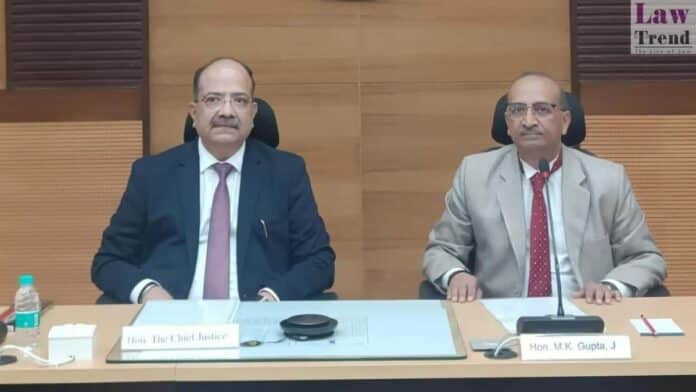Dr. Rajendra Prasad National Law University is proud to announce the commencement of its online International Workshop on ‘Integrated Legal Education: Transforming Approaches to Pedagogy and Research in Law.’ Running from July 3 to July 7, 2024, this six-day virtual workshop aims to introduce innovative teaching techniques and strategies specifically tailored for integrated legal education.
The workshop includes 14 technical sessions covering dedicated topics crucial for enhancing participants’ abilities in law-teaching pedagogy. It offers effective strategies to elevate legal education, with significant discussions on integrating technology into law teaching, ensuring that educators are well-equipped for the digital age.
The workshop features a galaxy of distinguished speakers from globally renowned institutions. Participants will have the privilege of learning from eminent resource persons affiliated with prestigious institutes such as the Supreme Court of Hawaii, USA; University of Bradford, United Kingdom; University of British Columbia, Vancouver, Canada; University of Colombo, Sri Lanka; and University of Kathmandu, Nepal. Additionally, the presence of distinguished speakers from eminent Indian institutions and universities, including the Vice Chancellor of National Law School of India University (NLSIU), Bangalore, and many others, further enhances the workshop’s prestige. This diverse and esteemed group of speakers promises to impart invaluable insights and scholarship, ensuring a truly enlightening experience for all attendees.

The inaugural session of the workshop, held today, was graced by Honorable Mr. Justice Arun Bhansali, Chief Justice of the Allahabad High Court, and Honorable Mr. Justice Manoj Kumar Gupta, Judge of the Allahabad High Court, as Chief Guest and Guest of Honour, respectively. Sr. Prof. Usha Tandon, Vice-Chancellor of RPNLU, welcomed the dignitaries and underscored the significance of the workshop by highlighting the various themes and topics covered.
Honorable Chief Justice Bhansali emphasized the critical role of integrated legal education in shaping the future of law professionals and the legal system. He said, “This workshop holds immense significance for several reasons. Firstly, it aims to introduce innovative teaching techniques and strategies tailored specifically for integrated legal education. This initiative is vital for enhancing participants’ abilities in law-teaching pedagogy, providing them with effective strategies to elevate legal education. Secondly, it will explore student-centered learning approaches and their application in law schools, which is essential for fostering active participation and critical thinking among students. It will also focus on enhancing participants’ skills in designing effective courses, promoting a research-oriented approach to law teaching, and creating a collaborative platform for educators to share best practices and challenges. Overall, this workshop represents a significant opportunity to refine the teaching methodologies and contribute to the advancement of legal education.”
Honorable Justice Gupta highlighted the importance of embracing innovative teaching methodologies to ensure that legal education remains relevant and impactful in the rapidly evolving digital age. Justice Gupta emphasised on the role of teachers by saying, “In ancient times in our country, the Guru (teacher) had a paramount role in imparting education and knowledge to his or her wards. When I decipher the word Guru, it is a combination of two terms, Gu, which means darkness and Ru, the one who dispels darkness. Therefore, the role of a Guru, educator or teacher is to facilitate the journey of a person from ignorance to enlightenment.”
Later, a technical session was addressed by Prof. Sudhir Krishnaswamy, Vice Chancellor of NLSIU, Bangalore. Prof. Krishnaswamy discussed the importance of interdisciplinary methods in legal education and how the legal curriculum may affect the course of interdisciplinary research. He offered strategies for upcoming legal obligations and highlighted the the responsibility of law schools in reintegrating social science courses with legal studies and research.
In the following session, Prof. Engobo Emeseh from the University of Bradford, United Kingdom, shared her experiences with pedagogical and law curriculum development on Sustainable Development. She explained the interdisciplinary teaching and learning process using the Sustainable Development Framework. Emphasizing the multidimensional nature of sustainable development, she highlighted the importance of the overall development of students and stressed that scholars of law should go beyond their academic disciplinary boundaries to include philosophy and other social sciences.
This workshop promises to be a milestone in legal education, offering participants unparalleled insights and practical strategies to enhance their teaching and research capabilities.







